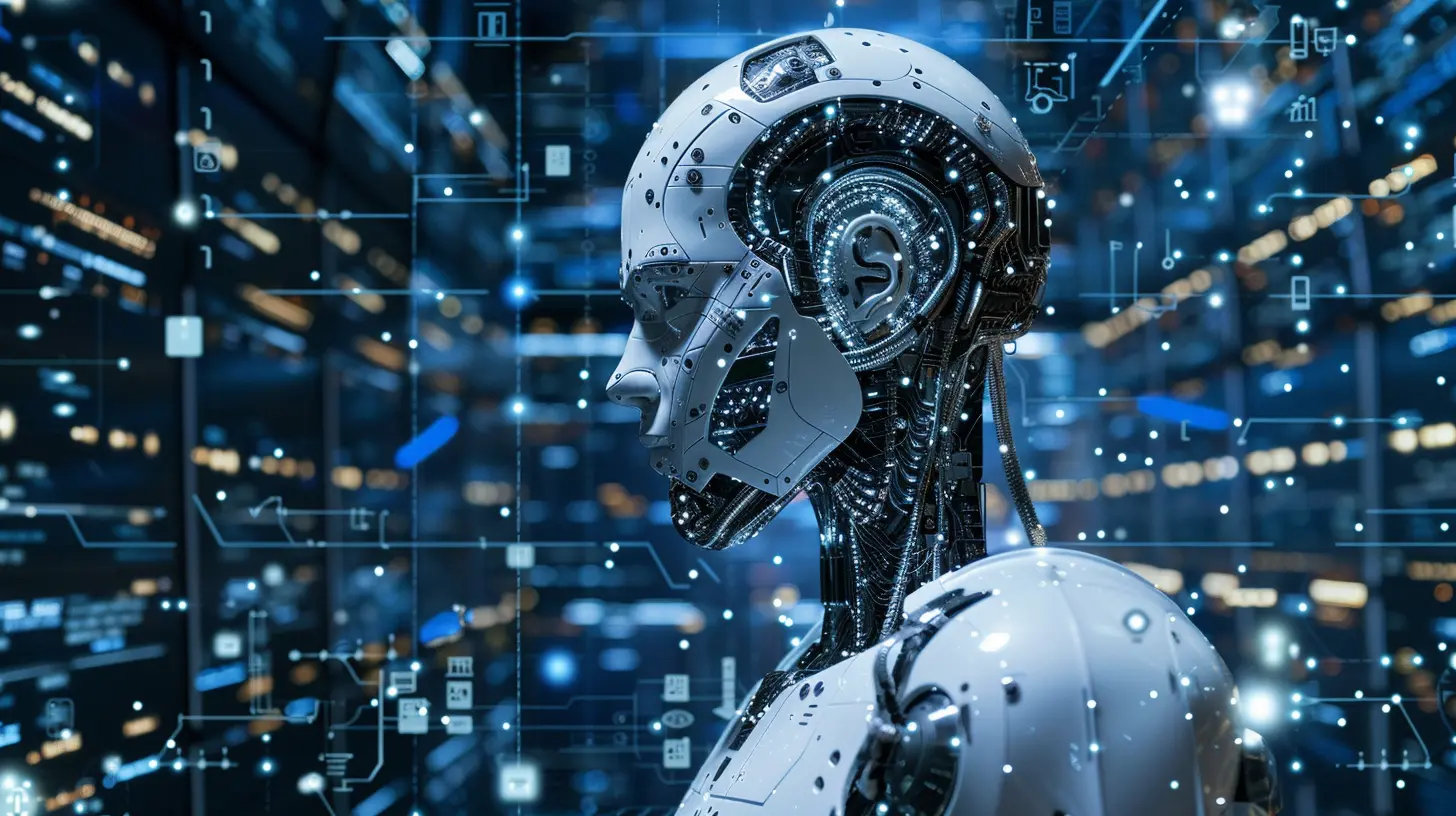AI and the Future of Remote Work: What to Expect
13 September 2025
The future of work is changing rapidly, and it's no secret that artificial intelligence (AI) is playing a huge role in shaping this transformation. Remote work, which was once seen as a temporary solution, is now being embraced as a long-term trend. But what happens when you throw AI into the mix? How will our jobs, the way we work, and the workplace itself evolve as AI becomes more integrated into remote work?
In this article, we'll dive into these questions and explore how AI is impacting the future of remote work. We'll also discuss what you can expect in the coming years, both in terms of opportunities and challenges. So, if you're curious about how AI and remote work are converging to change the way we live and work, keep reading!

The Rise of Remote Work: A Quick Recap
Before we jump into AI, let's take a step back and look at how remote work has evolved. The COVID-19 pandemic forced many companies to adopt remote work almost overnight. What started as a temporary measure quickly became the "new normal."Fast forward to today, and remote work is no longer just a necessity; it's a preference for many employees. In fact, many companies have adopted hybrid work models, allowing employees to split their time between home and the office. This shift has dramatically changed the traditional 9-to-5 job, and it’s safe to say that remote work is here to stay.
But as remote work becomes more common, there are challenges that come with it—such as communication, collaboration, and productivity. This is where AI steps in to shake things up.

How AI is Already Transforming Remote Work
AI isn't just some futuristic concept that’s far off in the distance. Nope, it's already here and making an impact in various industries. When it comes to remote work, AI is helping in a few key areas:1. Automating Repetitive Tasks
No one likes doing boring, repetitive tasks, right? Whether it's scheduling meetings, sorting emails, or handling customer service inquiries, these tasks eat up precious time that could be spent on more meaningful work. AI tools, like virtual assistants and chatbots, are automating these mundane tasks, freeing up employees to focus on more strategic projects.
For example, tools like Calendly can automatically schedule meetings based on preferences and availability. AI-powered email assistants like Superhuman can help you prioritize and respond to emails more efficiently. This means that remote workers can stay more organized and productive, even without a physical office or in-person meetings.
2. Enhancing Communication and Collaboration
One of the biggest challenges with remote work is staying connected and collaborating effectively. But AI-powered tools are making it easier than ever. Platforms like Zoom and Microsoft Teams already use AI to improve video and audio quality, making virtual meetings smoother and more efficient.
AI is also being integrated into project management tools like Trello and Asana, where it can help teams manage workflows, predict deadlines, and even suggest next steps for tasks. Imagine having a virtual team member who can anticipate roadblocks and suggest solutions before they even become an issue—pretty cool, right?
3. Improving Employee Well-Being
Remote work can sometimes feel isolating, leading to burnout or decreased productivity. AI is being used to monitor and improve employee well-being in remote environments. For instance, AI-powered tools like Humu and Ginger offer personalized wellness recommendations, from mental health resources to productivity tips, ensuring that employees stay healthy, happy, and engaged in their work.AI can also track and analyze patterns in employee behavior, helping companies identify when someone might be overworked or stressed. This allows for early intervention and support, creating a healthier work environment—even when everyone is miles apart.

The Future of Remote Work: What AI Will Bring Next
So, we've covered how AI is already impacting remote work. But what's next? As AI continues to develop, we can expect even more significant changes in the way we work. Here are a few trends to keep an eye on:1. AI-Powered Virtual Offices
Remember when the idea of working from a virtual office sounded like something out of a sci-fi movie? Well, it's becoming a reality. AI, combined with virtual reality (VR) and augmented reality (AR), is paving the way for immersive virtual workspaces.Imagine walking into a virtual office where you can interact with your colleagues, attend meetings, and collaborate on projects—without ever leaving your house. AI could power these virtual environments, making them more intuitive and adaptable to each individual's needs. Think of it as a digital coworking space where AI helps facilitate collaboration, creativity, and productivity.
2. AI-Driven Personalization
One-size-fits-all solutions just don't cut it anymore. In the future, AI will make remote work experiences more personalized. How? By analyzing your work habits, preferences, and strengths, AI can tailor your workday to suit you best.For example, AI could suggest your optimal work hours based on your productivity patterns or recommend specific tools and resources that align with your skills. This level of personalization could lead to higher job satisfaction, improved performance, and a better work-life balance for remote employees.
3. Augmented Decision-Making
AI is excellent at analyzing data and spotting trends, making it a powerful tool for decision-making. In the future, AI could serve as an advisor or consultant, helping remote teams make more informed decisions.Imagine having an AI system that can analyze massive amounts of data in real-time, providing actionable insights on market trends, customer preferences, and competitor activity. This would allow companies to make faster, data-driven decisions, giving them a competitive edge in the market.
4. Reskilling and Upskilling Through AI
As AI takes over more repetitive tasks, there will be a growing need for employees to focus on higher-level, creative, and problem-solving skills. The good news? AI can help with that too!AI-powered learning platforms like Coursera and Udemy are already using machine learning algorithms to recommend courses and learning paths based on your career goals and current skill sets. In the future, AI could offer even more personalized training programs, helping remote workers continuously reskill and upskill to stay competitive in the job market.

Challenges to Consider
While AI offers many exciting possibilities for the future of remote work, it's not all sunshine and rainbows. There are challenges that companies and employees will need to address as AI becomes more integrated into the workplace.1. Job Displacement
One of the most significant concerns surrounding AI is the potential for job displacement. As AI automates more tasks, there’s a real fear that some jobs may become obsolete. However, while some roles may disappear, new ones will emerge that require creativity, critical thinking, and emotional intelligence—skills that AI simply can't replicate (yet).2. Data Privacy and Security
AI systems rely heavily on data to function properly. This raises concerns about how companies collect, store, and use employee data—especially in a remote work environment. To ensure that AI is used ethically, companies will need to implement robust data privacy and security measures.3. AI Bias
AI is only as good as the data it's trained on, and if that data is biased, the AI system will be too. This can lead to unfair outcomes in areas like hiring, promotions, and performance evaluations. Companies will need to actively work to eliminate bias in their AI algorithms to ensure fairness and equality in the workplace.Preparing for an AI-Powered Remote Work Future
So, how can you prepare for the future of remote work as AI continues to evolve? Here are a few tips:- Embrace Lifelong Learning: As AI takes over more routine tasks, focus on developing skills that machines can’t easily replicate, such as creativity, problem-solving, and emotional intelligence.
- Stay Informed: Keep up with the latest AI developments and understand how they might impact your industry and job role. This will help you stay ahead of the curve and be prepared for potential changes.
- Leverage AI Tools: Familiarize yourself with AI-powered tools that can enhance your productivity and collaboration. Whether it’s a virtual assistant, a project management tool, or a wellness app, these tools can help you work smarter, not harder.
Conclusion
AI and remote work are two of the most significant trends shaping the future of work, and their convergence is set to bring about profound changes. From automating repetitive tasks to creating personalized work experiences, AI is poised to make remote work more efficient, productive, and enjoyable.However, with these opportunities also come challenges—such as job displacement, data privacy concerns, and AI bias. By staying informed, embracing lifelong learning, and leveraging AI tools, we can prepare ourselves for the exciting (and sometimes uncertain) future of work.
One thing’s for sure: AI and remote work aren’t going anywhere. The future is already here, and it’s going to be exciting to see how it continues to evolve.
all images in this post were generated using AI tools
Category:
Artificial IntelligenceAuthor:

Jerry Graham
Discussion
rate this article
1 comments
Oren McTigue
This article insightfully highlights how AI will enhance remote work by increasing productivity and collaboration. Embracing these technologies will be crucial for businesses to thrive in the evolving work landscape.
September 17, 2025 at 3:11 AM

Jerry Graham
Thank you for your thoughtful comment! I completely agree that embracing AI will be key to enhancing productivity and collaboration in remote work.


